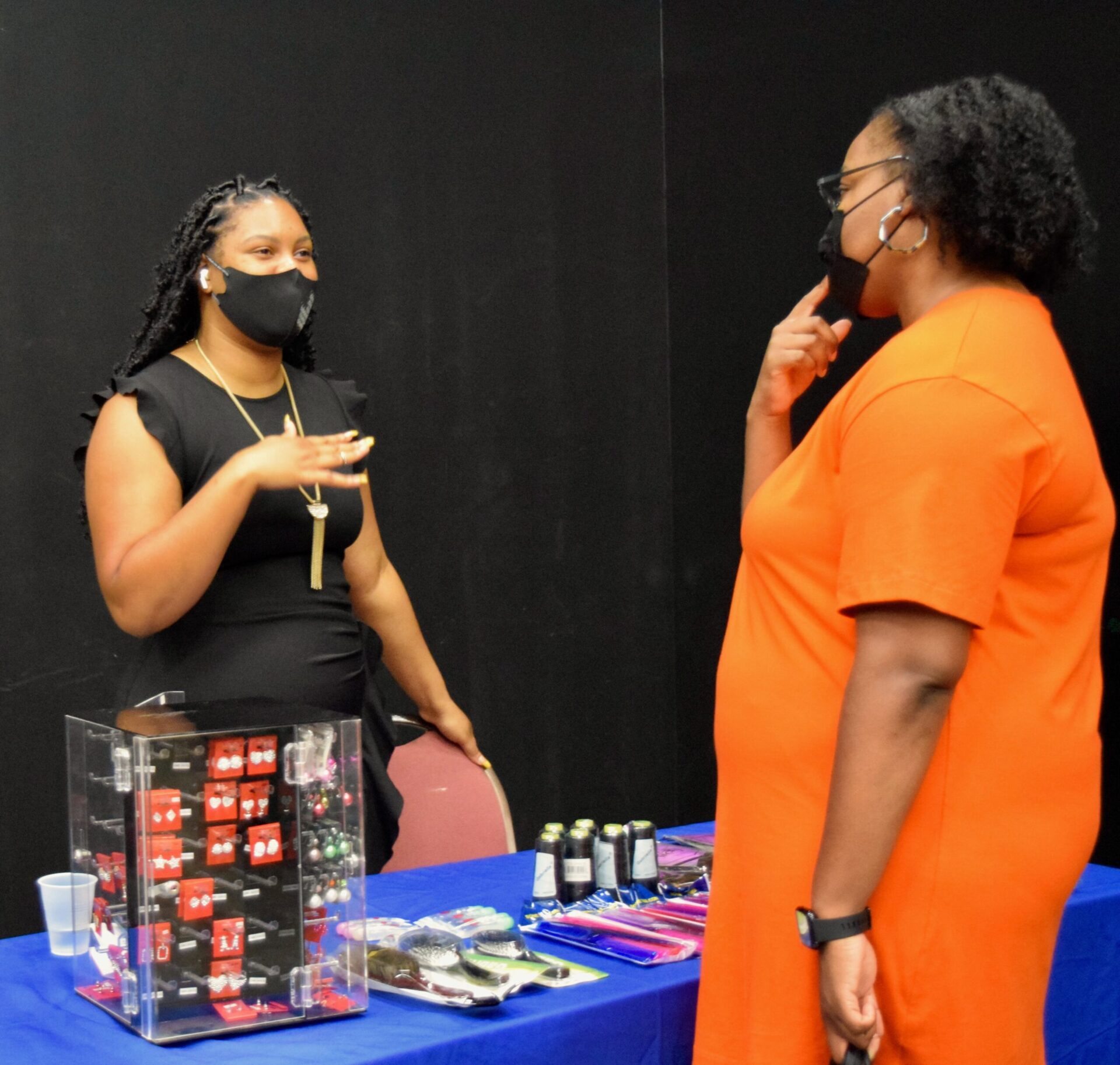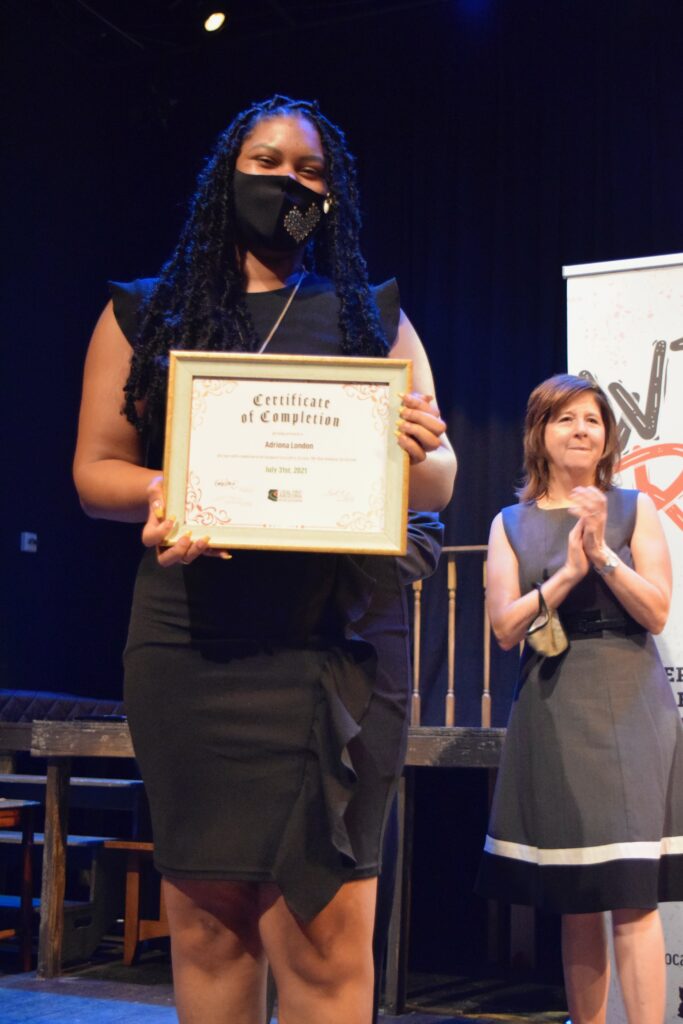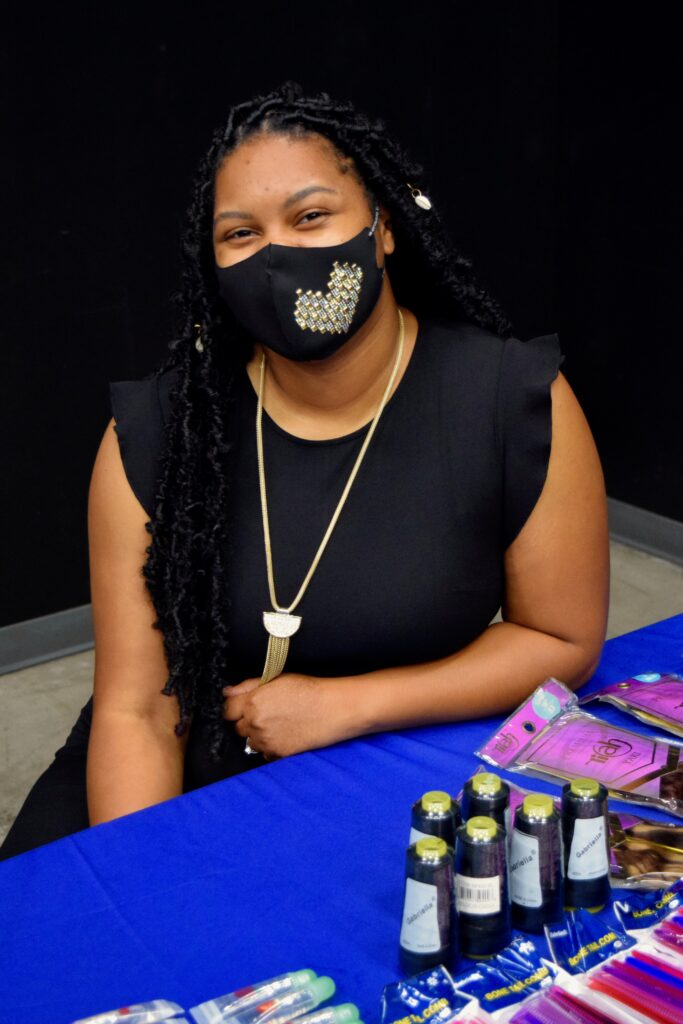
By Tony Gutiérrez, for wn.calicoeng.com
For Adriona London, owner of Slay Blessed, a Tempe-based beauty-supply business, an innovative business education and mentoring program aimed to fortify Black-owned businesses provided the boost she needed.
The program, “We Rise,” was created by Local First Arizona, a non-profit organization focused on community and economic development. It’s especially aimed at connecting locally owned business with their communities. According to its website, localfirstaz.com, it seeks to “build a diverse, inclusive and prosperous Arizona economy.”
We Rise, London said, was intense but very beneficial.
“I wasn’t expecting it to be on a college level,” she said. “It just made you feel like your business, your vision, your plan, is not just a dream that’s so unreachable or so unattainable. It pretty much made it a reality: ‘You can get there, and this is how.’”
At the outset, We Rise organizers were looking for Black entrepreneurs with at least a year of business experience. London was among them.
So was Derek Robinson, a 37-year-old English teacher at Primavera Online School, who also has been roasting coffee for about 10 years. His wife Pam, a native of Kenya, introduced him to it, giving him a desire to learn the craft of roasting. After colleagues and students began regularly asking Robinson for fresh-roasted coffee beans, he and Pam decided to turn the hobby into a business, Tempe-based Derek Sips.
When the couple learned about We Rise, they jumped at the opportunity. Robinson, along with London, is among 12 Valley-area Black entrepreneurs who recently graduated from the program.

Derek Sips partners with Genuine Origin, an organization that works to ensure that the farmers it purchases coffee beans from receive a sustainable living wage. Robinson has worked with producers from seven countries: Ethiopia, Costa Rica, Brazil, Guatemala, Kenya, Uganda and Colombia.
Among his goals is to educate consumers about the cultural origins of the coffee they drink, with each bag depicting the flag of its country of origin. The company regularly posts “fun facts” about the countries their coffee is from. He also acknowledged the uniqueness of him being a Black coffee roaster, noting that if a producer visited a coffee shop in the U.S., they wouldn’t see anybody that looked like them.
“We want to draw attention to the producers and the farmers in regard to coffee. It’s one of those things people just drink, and they don’t think beyond it,” he said.
Thanks to We Rise, Robinson has gained some insight into how to grow his business.
Participants go through a free six-month program, meeting biweekly and covering topics such as business-model development and planning, financial literacy, business licensing, customer service and networking, in addition to addressing issues unique to Black business owners.
“We talked about things like redlining, predatory lending, things that are affecting our community and how we can navigate through that, and how can we be a strong resource and support system for one another,” said Carmen Attikossie, We Rise senior manager for Local First Arizona.
“With the We Rise program, we want to create more dollars circulating in the Black community, and we want to create a community where Black people here in Arizona feel supported.”
For her part, London knows there’s a large market for Slay Blessed’s beauty products and that she’s uniquely poised to address that demand.
As reported by Essence Magazine in 2019, African Americans account for $1.2 trillion spent on beauty products each year. Yet only 3 percent of owners are Black, says London. Slay Blessed is an effort to change that, she said, with the products offered being geared toward the Black community, such as natural hair products, extensions, braiding or other items geared toward ethnic hair.
“The majority of beauty-supply stores geared to African Americans don’t really know what they’re selling,” she said. “They don’t know the product: ‘This is how long you need this to sit on you.’ They don’t have that customer experience versus someone who is African American, who is selling African American products, can give you. If we’re the main contributors to this business, we should also have some ownership in that.”
Among London’s goals is to open a brick-and-mortar shop. Participating in We Rise helped her learn to balance work and family life by budgeting her time and making use of calendars. The program also taught her how to pitch to investors.
“We had a two-minute elevator pitch, pitching my business in a short timeframe in order to capture the attention of investors,” she said, adding that participants were able to practice their pitches at the graduation from the program.

Tempe Mayor Corey Woods, the city’s first Black mayor, was on hand for the graduation.
“The We Rise program that Local First Arizona initiated is an inspiring opportunity for Black entrepreneurs to launch or expand their business to build generational wealth,” Woods said in a statement to Wrangler News.
“Attending the graduation was important to me because I wanted the participants to know that the city of Tempe is supportive and interested in the success of these amazing entrepreneurs and startups.”
We Rise is based on Fuerza Local, a similar program, also sponsored by Local First Arizona, for Spanish-speaking entrepreneurs. Attikossie was hired in September 2020 to develop the curriculum and organize the first cohort, eventually designing 14 modules, including “Doing Business While Black.”
“We spent some time to understand the entrepreneurial system and what’s going on with Black entrepreneurs in our country — what are some of the weak areas, and what are the critical areas folks need to survive in the entrepreneurial ecosystem here in Arizona and nationally,” she said.
Participants in the We Rise program are required to develop their own goals and a business plan, to save at least $1,000 and have a written plan for how they’ll use the funds to grow their business. Upon participants’ graduation, Local First will match the amount they saved up to $1,000.
Being paired with a mentor helped Robinson reevaluate some of his goals to make his business more successful. Although he’d initially planned to open a brick-and-mortar shop in South Tempe, with guidance from his mentor he determined that it would be better to open a coffee cart and continue holding pop-up events, typically near Tracy Dempsey Originals, at Priest and University Drives, or near Crêpe Bar, at Rural and Elliot roads. The frame for the cart is built, Robinson said, and the company is in the process of installing plumbing and obtaining a permit from Maricopa County.
Robinson said he appreciated the peer-to-peer aspect that allowed participants to trade ideas with each other and to collaborate.
“All of you are willing to grind and work hard to overcome the obstacles that will come as you try to grow your business and grow your brand,” he said. “It always takes a village, even bouncing ideas off other business owners. Why not have a village of similar cultures and similar background to help us push and pursue our dreams and the things we love?”

